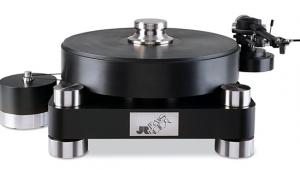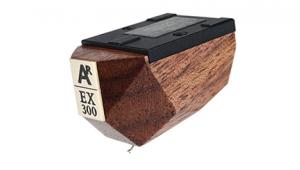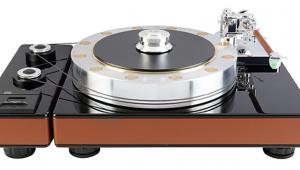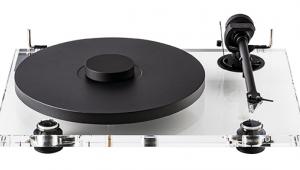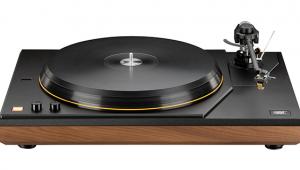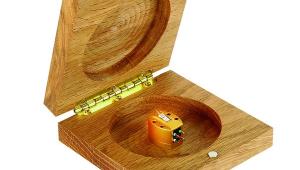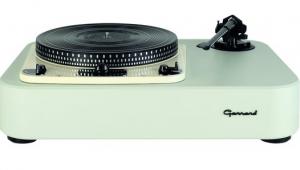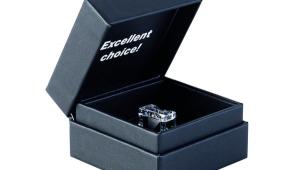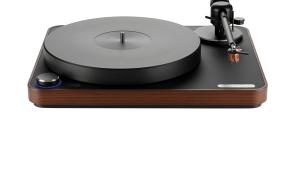Linn Kandid (£2960)

The Kandid differs in several significant ways, the most visually conspicuous of which is its new ‘naked’ generator assembly. It has long been known that cartridge bodies induce coloration. So designers have periodically experimented with all sorts of housing materials, but the Kandid dispenses with a conventional body altogether. Potentially, this makes installation hazardous but the Kandid’s clever stylus guard is more like a ‘body guard’, which makes fitting it a relatively easy process.
The chassis is aircraft-grade aluminium, and sports the three-point mounting hole system first seen in the Troika a quarter of a century ago (you can use just the main two holes if not fitting it to a Linn or Naim arm).
Out of the generator assembly protrudes a boron cantilever tipped with a 3x70µm nude line contact stylus; the angle at which this sits has been changed from the Akiva’s 23° to 20°, so as to bring the front and rear magnets inside the generator into perfect alignment when the correct tracking weight is applied. A plastic front yoke screw is fitted (metal might interfere magnetically with the pick-up coils) and this allows the arm counterweight to be set closer to the bearings. Recommended tracking force is 1.72-1.77g (we found the cartridge worked at its best at 1.75g).
While the Kandid is a far less attractive looking affair than the svelte, black-bodied Akiva, it shows every sign of being as meticulously hand-built.
Tuneful
Linn pick-ups have historically been on the incisive side. Suffice to say that the new transducer isn’t a radical departure, inasmuch as it doesn’t attempt to seduce the listener with a silky suaveness – rather, it gets right into the groove and pulls out the music with breathtaking insight.
Whatever you choose to play, the Kandid shows the same basic instinct to push the song along, as if on a mission to drive the musical point home. Yet this doesn’t come from any jarring tonal brightness, rather, it ‘sparkles up’ duller recordings, breathing life into them without making brighter ones in any way unpalatable.
This said, one could never claim that it delights in dog-eared discs. Our ‘well campaigned’ original issue of Deodato’s Midnight Cruiser [Warner] sounds as if it has been to one too many parties, and the Linn doesn’t mask this. Yet no sooner had the lead-in groove run its natural course the cacophony of surface noise melted away as the Kandid began to sing like a bird.
Our copy of Tom Tom Club’s eponymous LP [Island] has stood the test of time better, and the beautiful but bonkers ‘Genius Of Love’ sounded just that. The tightly syncopated drum and bass guitar work of Chris Frantz and Tina Weymouth was gripping stuff. Even though the track plods along at only a moderate pace, the Kandid was a veritable energy rush – digging deep and throwing out masses of detail. Yet it all fitted together in a natural, believable way.
You’d never call this cartridge sumptuous: it isn’t tonally rich in a euphonic way, although placement in the still ever-so-slightly-warm Sondek does invest it with a little more body in the upper bass and lower midband. But wherever it finds itself, the bass sounds taut and tuneful, without any hint of overhang; midband is transparent and three-dimensional, and the treble crisp, delicate and detailed almost to a fault. And what it is brilliant at is locating instruments in space: as Chick Corea’s Return To Forever [ECM] showed, they might as well be nailed to the back of your listening room wall.
Verdict
The new Kandid betters Linn’s Akiva across the board, bringing greater insight and grip while improving still further on its musicality. Recordings appear in pin-sharp focus, yet the cartridge seems to ‘enjoy itself immensely’ while doing so. An excellent new moving-coil.
Originally published in the 2013 yearbook

